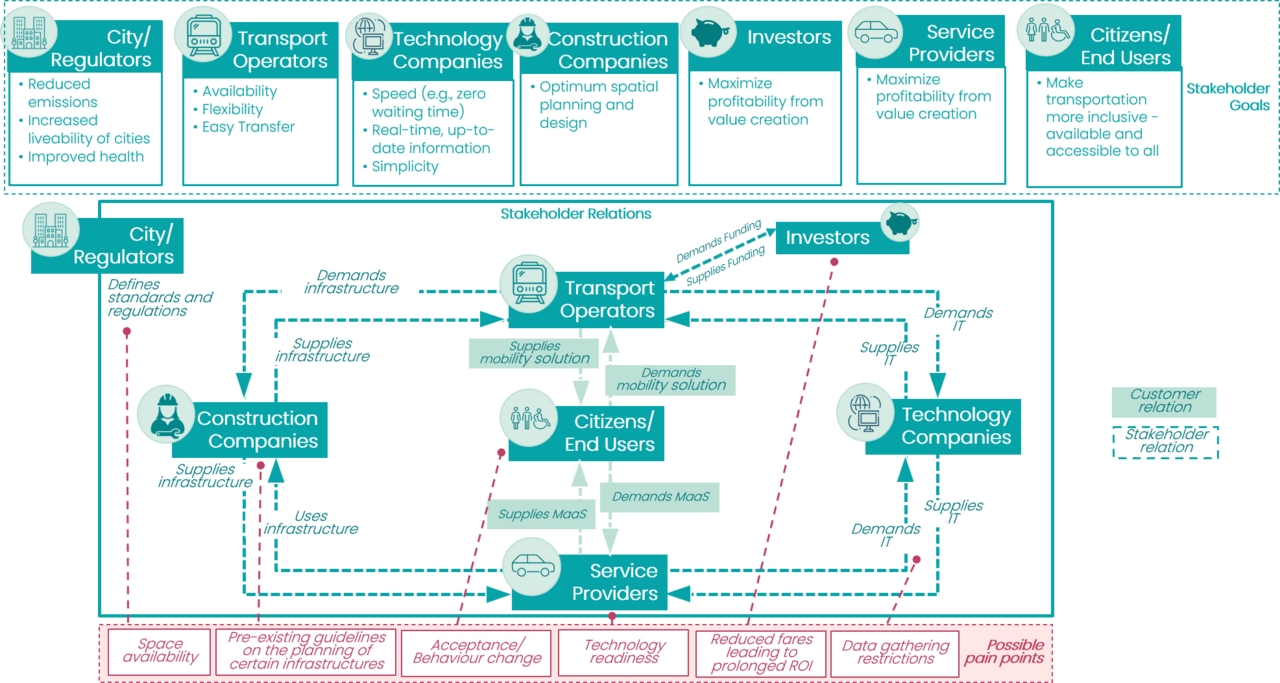What is the starting point?
In Mediterranean regions, particularly in urban areas, the challenge is to achieve a balance between the need to accommodate dense populations and the constraints of limited space. In contrast, rural areas are characterized by a lack of adequate public transport, which renders first- and last-mile solutions a matter of critical importance. Mobility hubs serve two distinct purposes: firstly, to enhance connectivity and secondly, to reduce the reliance on private vehicles. It is for this reason that they are emerging as a pivotal solution to address traffic congestion, pollution, and transport inefficiencies in Mediterranean cities.
The success of mobility hubs is contingent upon the involvement of several key stakeholders, including regulators, transport operators and technology providers. These collaborations facilitate the integration of real-time information systems and digital applications, thereby enhancing the efficiency and accessibility of multimodal transport.
This is why the outputs of GREENMO project will be so important for future reference!
Indeed, the GREENMO project represents a significant advance towards the creation of sustainable and inclusive mobility solutions in the Mediterranean. The GREENMO project has the objective of promoting the integration of green and inclusive mobility hubs in order to facilitate the development of more environmentally sustainable living areas in the Mediterranean region. In particular, the project will endeavour to foster low-carbon mobility in living areas, with the objective of mitigating the impact of urban mobility on the environment (CO2 reduction).
This will be achieved by supporting public authorities in leveraging “mobility hubs” schemes for climate change adaptation in a holistic manner, while actively involving citizens and local communities in identifying and mitigating their real needs and barriers to behaviour change and the adoption of environmentally friendly modes of transport.
What are we working on right now?
The project has reached its second phase, during which Work Package 2, led by l-Universita’ ta’ Malta, will conduct in-depth interviews with policymakers and relevant stakeholders (public and private) involved in the design and operation of mobility hubs in order to gain insights into their concerns and rationale. The interviews will be conducted by all project partners in their respective cities to identify local challenges and benefits. The institutions, namely UniWA, ALOT, UCY, BaxCO, and the City of Ljubuški, are employing a unified approach.
The findings of the interviews will be elaborated through a thematic analysis, with the objective of achieving a comprehensive understanding of the decision-making considerations of key stakeholders across the Mediterranean, which is crucial to be integrated into the final strategy. The ultimate objective is to establish a holistic approach to understanding mobility hub design, implementation, and operations, with a view to supporting the development of greener, more connected communities across the Mediterranean and addressing the needs of citizens and tourists in urban, suburban, and rural areas.

Source: Gavilan Orozko, 2020 BABLE
Want more?
We encourage you to join us on our journey, to remain engaged with our progress and to participate in this transformative journey towards greener living areas.



